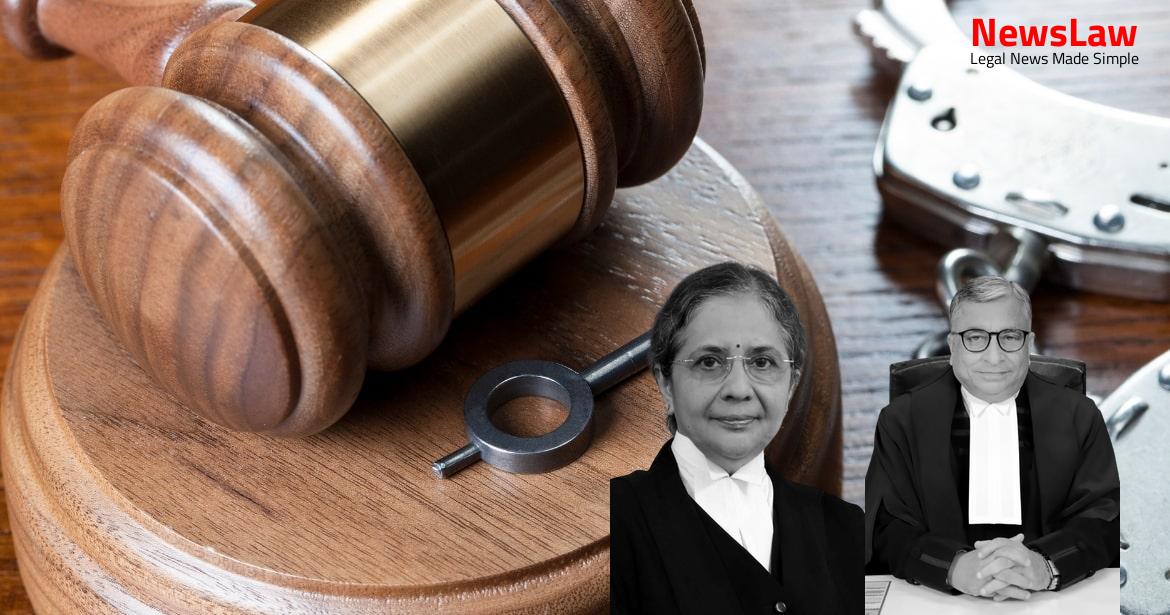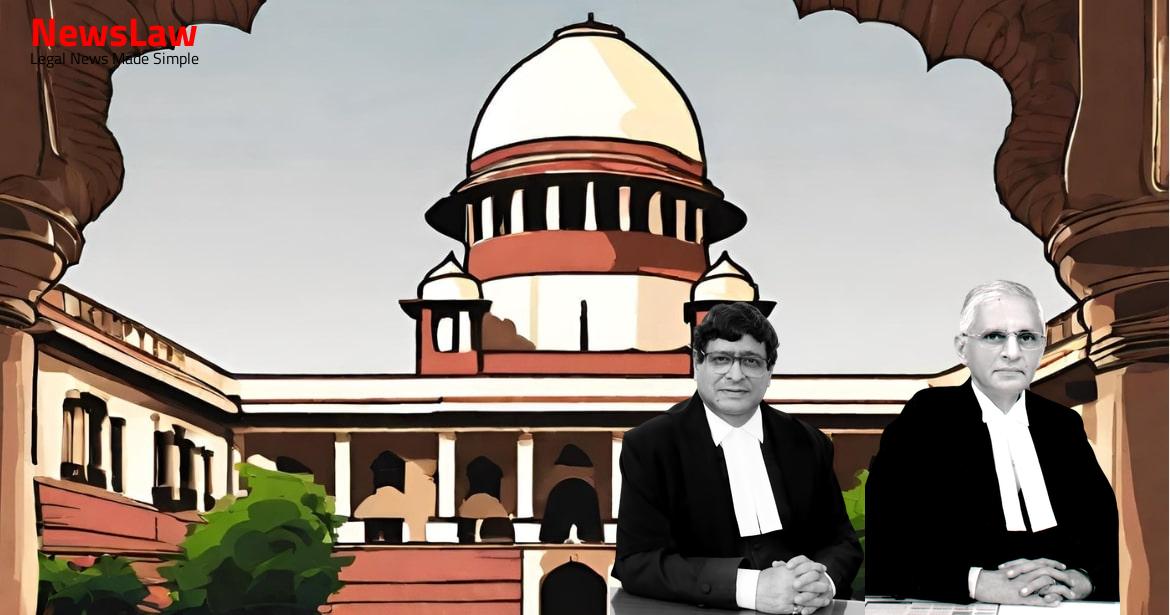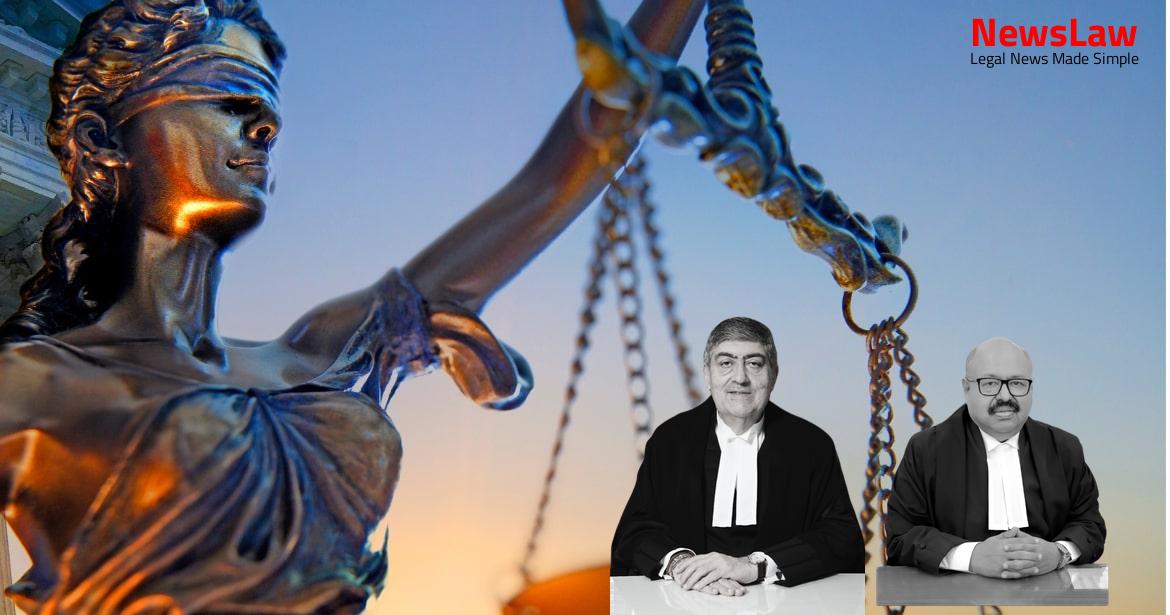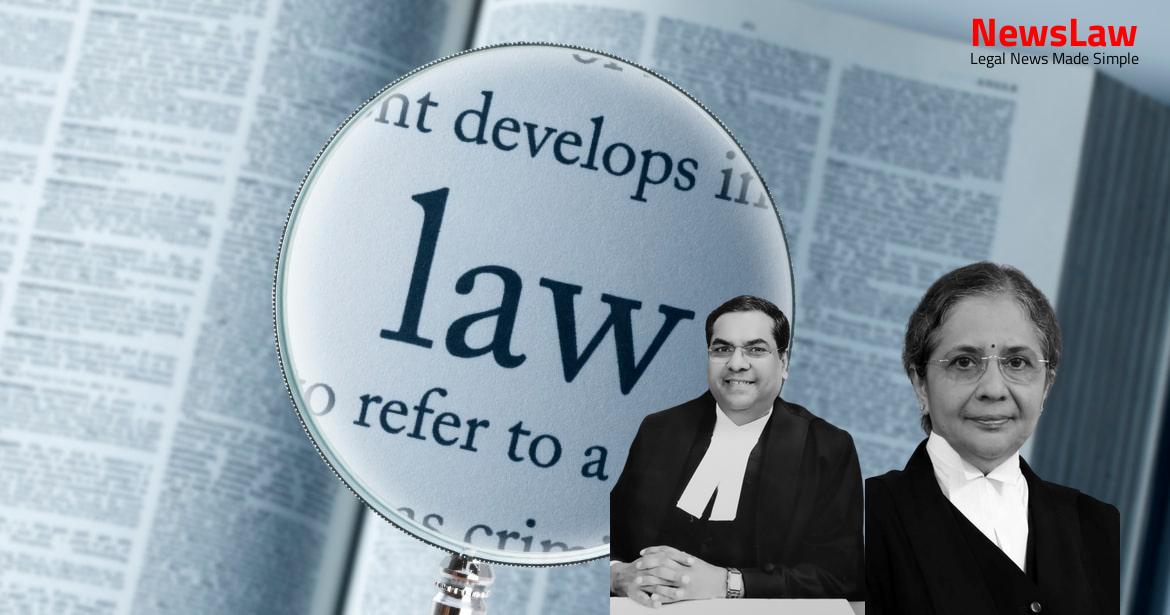Explore the detailed legal examination of a recent landmark case involving allegations of abetment of suicide. The court’s analysis focused on the crucial elements required to prove guilt in such cases, emphasizing the need for concrete evidence and clear intent to instigate suicide. Join us as we unravel the nuances of the court’s judgment in this complex legal matter.
Facts
- The deceased, Dr. M. Amali Victoria, passed away on 05.11.2014 due to asphyxia from external compression of the neck.
- The Trial Court acquitted the father-in-law of the deceased but convicted the husband and mother-in-law under Sections 498A and 306 IPC.
- The prosecution alleged that the deceased was abused and threatened by the appellants for not participating in a Pooja and for not having a child after 1.5 years of marriage.
- No witnesses were examined from the defense side.
- The FIR was converted from Section 174 Cr.P.C to Sections 498A and 306 IPC for further proceedings.
- Appellant No. 1 found the deceased non-responsive in the bathroom and called for an ambulance immediately.
- The deceased was subjected to continuous cruelty and forced to do all household work, leading her to commit suicide on 05.11.2014.
- High Court upheld the conviction of the Appellants under Sections 498A and 306 IPC
- The Respondent police were directed to send the appellants to undergo the remaining period of sentence
- Appellants’ appeal was dismissed with the observation that they had committed the offence under Sections 498A and 306 IPC
- Trial Court’s appreciation of evidence and conviction of the appellants was deemed rightful
Also Read: Assessment of Loss of Earning Capacity in Motor Accident Claim
Arguments
- Allegations of cruelty were made for the first time in the complaint by the mother of the deceased, not mentioned in 9 years of marriage
- Relations between the Appellants’ family and the deceased’s family were cordial
- Deceased was suffering from bipolar disorder, not disclosed at the time of marriage
- Courts below disregarded the testimony of PW-9, the medical professional who treated the deceased before her death
- Complaint made belatedly with ulterior motive as reflected in initial statements of family members of the deceased
- No signs of animosity between families immediately after the death
- Complaints started when one of the deceased’s sisters asked for custody of Appellant No.1’s son and was refused
- Appellant No. 1 took good care of the deceased despite non-disclosure of her bipolar disorder
- No abetment by the Appellants in the deceased’s suicide
- The evidence of PW-1 to PW-3 established that the accused demanded more dowry and subjected the deceased to abuse and humiliation.
- The deceased was compelled to consume cow urine in the name of ‘Pooja’.
- The Trial Court and High Court considered relevant factors and evidence before convicting the Appellants under Sections 306 and 498A IPC.
- PW-1 to PW-3 consistently described the harassment and incidents that led the victim to suicide, leaving behind her child.
- The abuse, harassment, and instigation by the accused intensified after the abortion of the second pregnancy in 2014.
Also Read: Enhancement of Compensation in Workmen’s Compensation Act Case
Analysis
- The conviction of the appellants under Sections 306 and 498A IPC was found to be unsustainable and therefore set aside, leading to their acquittal.
- The High Court erred in upholding the conviction based solely on the oral evidence of interested witnesses, ignoring the evidence of the psychiatrist who treated the deceased.
- There was no clear evidence of harassment or continuous physical or mental torture by the appellants leading up to the deceased’s suicide.
- The absence of proximate positive action by the accused and lack of evidence of continuous harassment cast doubt on the allegations made by prosecution witnesses PW-1 to PW-3.
- The deceased’s medical history of bipolar disorder and suicidal tendencies was not considered in the conviction, highlighting a critical omission in the trial process.
- The judgment critiqued the reliance on interested witnesses and emphasized the need for careful assessment of evidence in cases of abetment of suicide.
- Abetment of suicide is defined under Section 306 of the IPC.
- It involves instigating a person to commit suicide or aiding in the commission of suicide.
- Abetment of suicide is punishable with imprisonment of up to ten years and a fine.
- Section 107 of IPC outlines the different ways in which abetment can occur, including instigation and intentional aiding.
- To convict someone under Section 306 IPC, it is necessary to establish the state of mind to commit the crime and the act of instigation or aiding in the suicide.
- Instigation is defined as to goad, urge forward, provoke, incite, or encourage to do an act.
- The ordinary dictionary meaning of suicide is ‘self-killing’.
- In cases of accusation for abetment of suicide, there must be cogent and convincing proof of incitement to the commission of suicide.
- Instigation must be capable of suggesting the consequence of suicide, even if actual words need not be used explicitly.
- Evidence must be present to show that the accused intended to instigate the deceased to commit suicide.
- Mere harassment allegations without actions compelling the person to commit suicide are insufficient for conviction.
- For abetment of suicide, the accused must have a positive act of instigation or aid in the suicide.
- The Court must carefully assess the circumstances and evidence to determine if the accused is guilty of abetment of suicide.
- Accused uttering words in anger without the intent of instigating suicide does not constitute abetment.
- The role of the accused in damaging the self-esteem of the victim leading to suicide can result in the accused being found guilty of abetment.
- Hypersensitivity of the victim and the unexpectedness of their reaction to the accused’s actions must be considered in determining guilt for abetment of suicide.
Also Read: Determining Compensation in Motor Accident Claim Cases: Legal Analysis
Case Title: MARIANO ANTO BRUNO Vs. INSPECTOR OF POLICE (2022 INSC 1073)
Case Number: Crl.A. No.-001628-001628 / 2022



